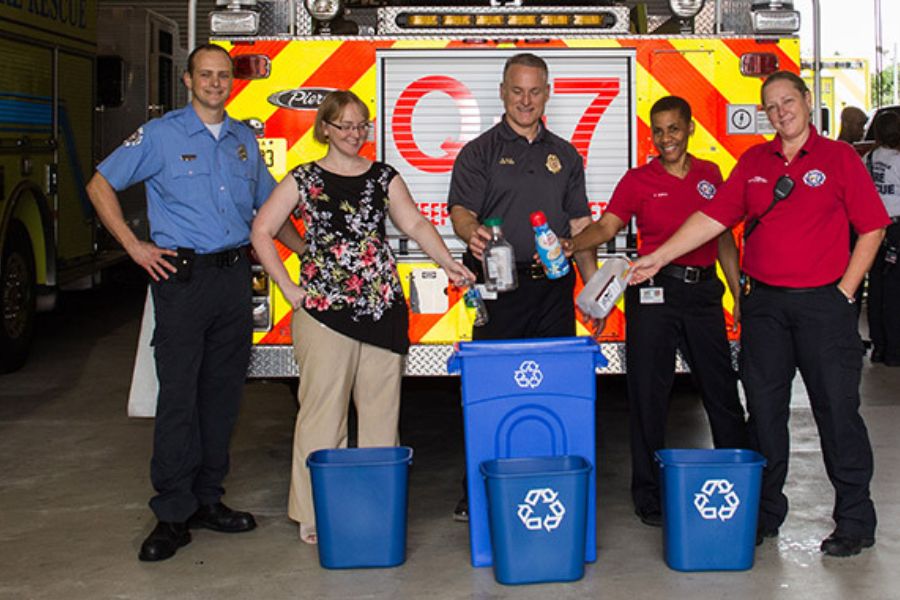Hallandale Beach Project Showcases Sustainability Plans’ Financial, Social Benefits

Sustainability Leader Ben Moore and his team rely on a three-element formula for successful sustainability efforts. Equal parts education, assessment and collaboration, this strategy yields clients considerable results environmentally, socially and financially.
The Hallandale Beach Sustainability Plan is evidence of that success. The project, finished in summer 2018, provides tangible actions the low-lying city can take to improve operations and mitigate climate change-related risks. The city is already acting on the plan and has secured funding for its implementation.
Assessment, shared knowledge, and collaboration
As part of this strategy, the team works to create a shared understanding of sustainability, assess the performance of the client’s operations, and collaboratively develop solutions to meet goals, in the process helping clients reduce risk, protect people and the environment, and conserve money and resources.
“A lot of times, plans sit on a shelf,” said Ben. “To ensure that this doesn’t happen to our plans, we combine technical expertise with a focus on the dynamics between the people who are going to be implementing the plan”
During the Hallandale Beach project, Ben and assistant project manager Nathan Stinnette spent about half of their time working with different stakeholders. They held public workshops, interviewed every department in the local government, and then worked with small teams to refine the plan.
RS&H provided 15 project ideas at the outset of workshopping, then trained staff to develop their own ideas. As a result, with RS&H’s technical support, the number of projects grew to 27 by the end of the process. Projects range from efforts to reduce facility and infrastructure energy use to work to increasing the reach of the city’s bicycle/pedestrian network.
The team’s focus on building the staff’s capacity to implement the plan proved critical. The city sustainability manager left to take another job soon after the plan was enacted.
“That employee’s departure could have been the end of things,” said Ben. “But because staff across the organization contributed to the plan, they haven’t missed a beat.”
Clear benefits rise above political discord
Hallandale Beach is well-known for its fractious political climate, a barrier Ben and his team worked to overcome. With that in mind, the team utilized a cost-benefit analysis. The team endeavors to include this kind of analysis in all of their work, as the analysis clearly lays out the return on investment from sustainability initiatives.
In Hallandale Beach’s case, the city will see a $2.2 million net benefit from implementation of its plan.
“There’s nothing to politicize,” said Ben. “It’s clearly good from environmental and social perspectives. It’s also clearly good from a financial perspective.”
The city commission unanimously adopted the plan. The city manager also developed a $100,000 revolving fund to begin implementing the project. Ben and his team recommended the revolving fund because it provides long-term support for sustainability initiatives. With this type of fund, the city takes money out for an improvement and then puts a portion of the money saved back into the fund for future projects.
Full-service sustainability
Throughout the project, Ben and his team were able to draw from RS&H’s other practices, a benefit of RS&H’s full-service offerings. The team tapped into the expertise of the Transportation-Infrastructure Practice for insight into transportation modeling, for example.
“Sustainability touches on all of the services that RS&H provides,” said Ben. “If our client has a special need, we have subject matter experts to tap into. Likewise, all of RS&H’s clients can benefit from our sustainability services.”
As the climate continues to change, those sustainability needs are likely to increase. Ben and his team stand ready to address them head-on, bolstered by a focus on the people behind the sustainability plan and the tangible benefits that result from the project.
Interested in what our Sustainability professionals can do for you or your community? Learn more about this service or get in contact with our Sustainability team.
